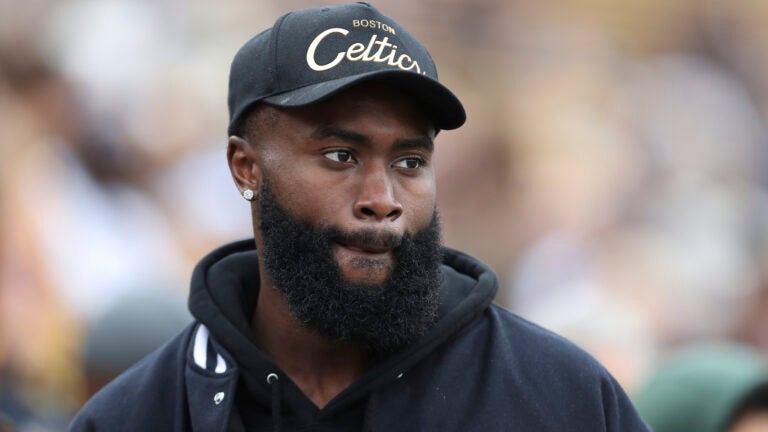Celtics’ Jaylen Brown: Black coaching candidates ‘deserve’ opportunities
"There’s plenty of qualified African Americans and Black people that can do their job. And they deserve to have a seat at the table.”

Recent Links
From leading protests in Atlanta following the murder of George Floyd by police in Minneapolis to being a prominent voice on activism and racial justice in last year’s NBA playoff bubble, Celtics forward Jaylen Brown has repeatedly gone against the “stick to sports” grain during his still-young career.
Even as he expands his efforts to lift up people from underprivileged communities off the court, Brown’s also pushing to improve representation in the NBA as well.
That’s why, as he told The Undefeated earlier this week, he’s thrilled to see a new wave of Black (and other ethnic minority) head coaches around the league in 2021.
“Whether it was because they were just trying to shut us up, or because they actually believed it was the right thing to do, it don’t matter to me. That representation is important,” Brown told The Undefeated’s Marc Spears. “And that’s giving people access and resources that they need and deserve to have, especially former players. They deserve to have a seat at the table too, especially in coaching positions, as well as in-office positions, ownership positions.”
Spears reported the 13 Black NBA head coaches who will start this season is the highest mark the NBA has seen since the beginning of the 2012-13 season. At this point, half of the NBA’s 30 head coaches will be people of color for a league that demographically consists of about 75 percent Black players but has often not seen commensurate representation in coaching and executive jobs.
Though the lot of Black coaches and the dearth of Black and minority executives in the NBA has long been a topic of discussion, players like Brown, Jerami Grant and others have grown more vocal about wanting to see more Black coaches leading teams.
Brown said he personally impressed on Celtics leadership last offseason the importance of hiring a Black head coach after Brad Stevens’s promotion to president of basketball operations — something he noted the franchise was “on board with.” Boston eventually brought in Ime Udoka, a former NBA player and veteran coach with obvious qualifications for the job.
“People may disagree, like, ‘They’re not qualified. They’re just getting the job because they’re African American.’ You’ve seen people say that in the media,” the 24-year-old Brown said. “And things like that. That’s some [expletive]. There’s plenty of qualified African Americans and Black people that can do their job. And they deserve to have a seat at the table.”
The young Celtics star, who had an All-Star campaign last season before suffering a season-ending wrist injury, also talked about the work he’s doing away from the court to make an impact in Boston’s communities.
One of his biggest recent initiatives: a fellowship called “The Bridge Program,” in partnership with MIT and Harvard, meant to create a pipeline to higher education in STEAM (science, technology, engineering, arts and math) for low-income students in Boston Public Schools. The requirement for the program? “I wanted kids that want to change the world,” Brown said.
Just because I escaped some of the barriers that society has put up and reached a certain level of success doesn’t mean I’m going to not care about the community that I came from.”
Jaylen Brown
Of course, don’t think just because Brown is getting kids into science education and meeting with former President Barack Obama that he’s not thinking about basketball.
The ascending forward says missing the playoffs of his NBA career last year was “one of the hardest things I’ve ever had to do” and that his goal is to get the Celtics back to the postseason, starting with being ready for training camp next week.
Like Udoka, Brown has identified his playmaking as an area of focus to round out his game, though he also hinted he’s ready to get back to high-flying, saying he’s “more athletic” than he was last season after battling knee issues.
He just doesn’t see why he can’t dominate on the court and use his platform to affect change off of it at the same time.
“Athletes, we have a lot of influence on the next generation,” he said. “So, instead of encouraging the culture to just dismiss our responsibility, like they try to do. … They try to encourage us, ‘No, you just need to focus on basketball. Oh, you just need to focus on this, go and get some cars, and some clothes, and some money and forget about everything to do with your community.’ But I disagree. Just because I escaped some of the barriers that society has put up and reached a certain level of success doesn’t mean I’m going to not care about the community that I came from.”